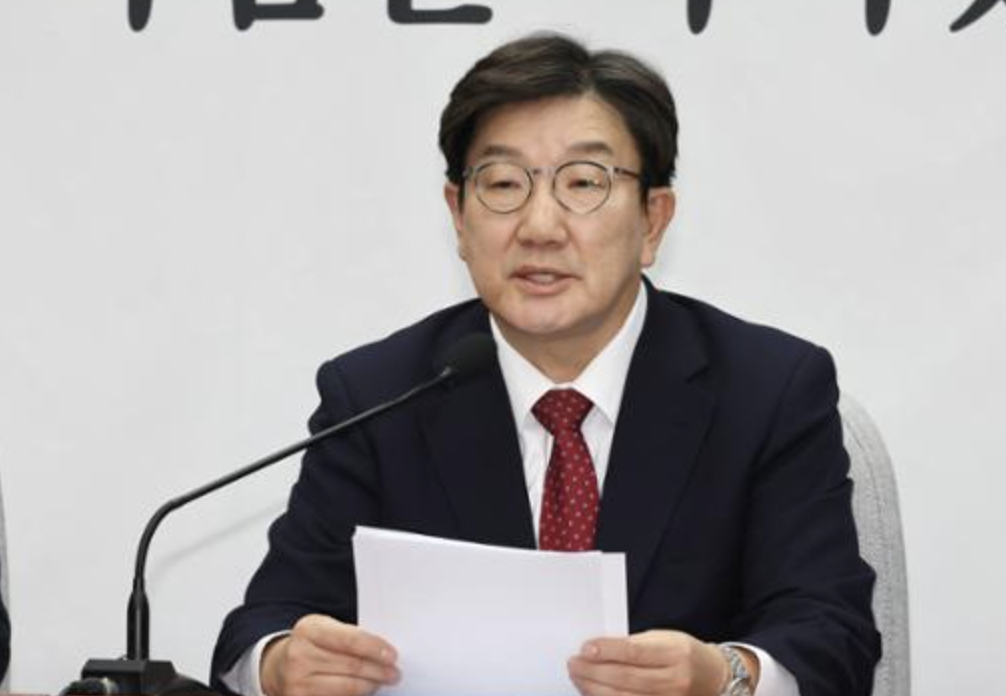The far-right forces and the People Power Party (PPP) have escalated their offensive against the Constitutional Court judges to an alarming degree. PPP Floor Leader Kwon Seong-dong has been aggressively attacking Constitutional Court justices with fake news and ideological smears, and on January 30, the last day of the Lunar New Year holiday, he once again pushed the narrative of a "political-judicial cartel." Speaking to reporters at the National Assembly, Kwon accused the Constitutional Court of trying to pave the way for upholding President Yoon Suk-yeol’s impeachment by "forcibly appointing Constitutional Court Justice nominee Ma Eun-hyuk" and claimed that "behind every unjust ruling lies the Democratic Party and judges affiliated with the progressive Our Law Research Society."

Kwon’s baseless claims appear to be a preemptive strike aimed at the Constitutional Court’s upcoming ruling on February 3. The court is set to decide on the authority dispute case filed by the National Assembly after Acting President Choi Sang-mok refused to appoint Ma Eun-hyuk as a Constitutional Court justice. Kwon went as far as to insist that "even if the Constitutional Court rules in favor of the National Assembly, Choi should not appoint Ma Eun-hyuk." This statement essentially calls for defying a Constitutional Court ruling, an astonishing claim coming from a senior ruling party leader.
While the judiciary is not above criticism, engaging in personal attacks, slander, and outright threats against individual judges—rather than constructively criticizing their rulings—undermines the very foundation of democratic governance. Worse still, these attacks are being carried out to shield President Yoon from accountability for his unconstitutional and illegal actions regarding martial law and insurrection. In doing so, the PPP is actively destroying the very "liberal democracy" it claims to uphold.
Kwon has already been caught spreading blatant misinformation, falsely claiming that Acting Constitutional Court Chief Justice Moon Hyung-bae was so close to Democratic Party Leader Lee Jae-myung that he attended his mother’s funeral. This lie was quickly debunked, yet Kwon continues his inflammatory rhetoric, labeling certain Constitutional Court justices as part of a "cartel." In reality, the current ideological composition of the Constitutional Court is commonly assessed as three conservative, two centrist, and three progressive justices. Given the nature of constitutional adjudication and the selection process, such a distribution is neither surprising nor problematic. If Kwon’s logic were applied consistently, then all judges who graduated from Seoul National University—President Yoon’s alma mater—should also be disqualified. His criteria for classifying justices based on personal affiliations rather than legal expertise are entirely detached from reality. While high-ranking PPP politicians make these outrageous claims, pro-Yoon protestors on the streets have taken their extremism even further—spreading fake news and inciting violent rhetoric.
There are growing concerns that another incident similar to the Seoul Western District Court attack, which shocked the nation, could occur. Instead of restraining these radical elements, the PPP is aligning itself with them, becoming increasingly extreme in the process. At first glance, this strategy may seem like a way to energize far-right voters and manipulate public sentiment. However, the overwhelming majority of South Koreans will not stand by and watch the PPP undermine democracy. If the party ultimately refuses to accept the Constitutional Court’s impeachment ruling, it must be prepared to face the backlash of an outraged public.